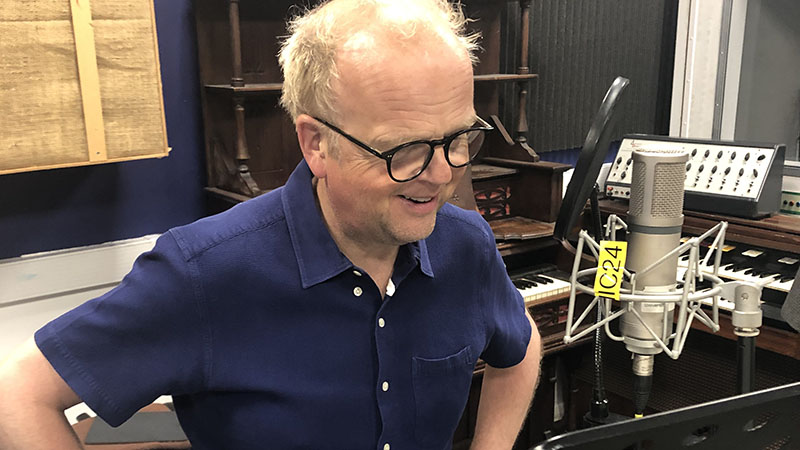Remembrances
Summer pleasures they are gone, like to visions every one,
And the cloudy days of Autumn and of Winter cometh on.
I tried to call them back but unbidden they are gone
Far away from heart and eye and for ever far away.
Dear heart and can it be that such raptures meet decay?
I thought them all eternal when by Langley Bush I lay;
I thought them joys eternal when I used to shout and play
On its bank at ‘clink and bandy’, ‘chock’ and ‘taw’ and ducking stone,
Where silence sitteth now on the wild heath as her own
Like a ruin of the past all alone.
When I used to lie and sing by old Eastwell’s boiling spring,
When I used to tie the willow boughs together for a ‘swing’,
And fish with crooked pins and thread and never catch a thing
With heart just like a feather – now as heavy as a stone –
When beneath old Lea Close Oak I the bottom branches broke
To make our harvest cart like so many working folk;
And then to cut a straw at the brook to have a soak.
O I never dreamed of parting or that trouble had a sting,
Or that pleasures like a flock of birds would ever take to wing
Leaving nothing but a little naked spring.
When jumping time away on old Crossberry Way
And eating haws like sugar plums ere they had lost the May
And skipping like a leveret before the peep of day
On the roly poly up and downs of pleasant Swordy Well,
When in Round Oak’s narrow lane as the south got black again
We sought the hollow ash that was shelter from the rain
With our pockets full of peas we had stolen from the grain:
How delicious was the dinner time on such a showery day.
O words are poor receipts for what time hath stole away –
The ancient pulpit trees and the play.
When for school o’er ‘little field’ with its brook and wooden brig
Where I swaggered like a man though I was not half so big,
While I held my little plough though ’twas but a willow twig
And drove my team along made of nothing but a name:
‘Gee hep’ and ‘hoit’ and ‘woi’ – O, I never call to mind
These pleasant names of places but I leave a sigh behind
When I see the little mouldiwarps hang sweeing to the wind
On the only aged willow that in all the field remains;
And nature hides her face where they’re sweeing in their chains
And in a silent murmuring complains.
Here was commons for their hills where they seek fo class="font-type-2"r freedom still,
Though every common’s gone and though traps are set to kill
The little homeless miners – O it turns my bosom chill
When I think of old Sneap Green, Puddocks Nook and Hilly Snow
Where bramble bushes grew and the daisy gemmed in dew
And the hills of silken grass like to cushions to the view,
Where we threw the pismire crumbs when we’d nothing else to do.
All levelled like a desert by the never-weary plough,
All vanished like the sun where that cloud is passing now
And settled here for ever on its brow.
O I never thought that joys would run away from boys
Or that boys would change their minds and forsake such Summer joys,
But alack, I never dreamed that the world had other toys
To petrify first feelings like the fable into stone,
Till I found the pleasure past and a Winter come at last.
Then the fields were sudden bare and the sky got overcast
And boyhood’s pleasing haunts like a blossom in the blast
Was shrivelled to a withered weed and trampled down and done,
Till vanished was the morning Spring and set that Summer sun
And Winter fought her battle-strife and won.
By Langley Bush I roam but the bush hath left its hill;
On Cowper Green I stray – ’tis a desert strange and chill –
And spreading Lea Close Oak ere decay had penned its will
To the axe of the spoiler and self interest fell a prey;
And Crossberry Way and old Round Oak’s narrow lane
With its hollow trees like pulpits I shall never see again.
Enclosure like a Bonaparte let not a thing remain,
It levelled every bush and tree and levelled every hill
And hung the moles for traitors – though the brook is running still,
It runs a naked brook, cold and chill.
O had I known as then joy had left the paths of men,
I had watched her night and day, be sure, and never slept again;
And when she turned to go, O I’d caught her mantle then
And wooed her like a lover by my lonely side to stay,
Aye, knelt and worshipped on, as love in beauty’s bower,
And clung upon her smiles as a bee upon a flower
And gave her heart my poesies all cropt in a sunny hour
As keepsakes and pledges all to never fade away;
But love never heeded to treasure up the May
So it went the common road with decay.

